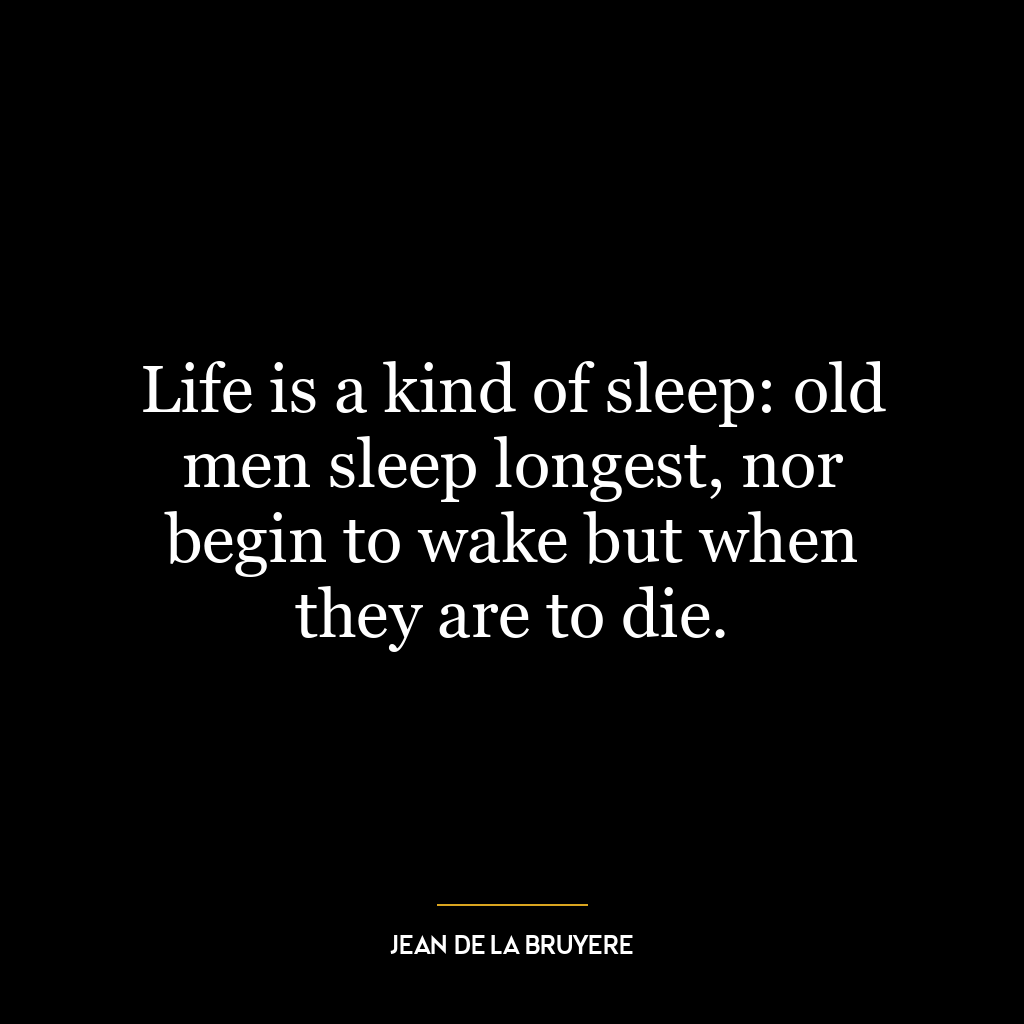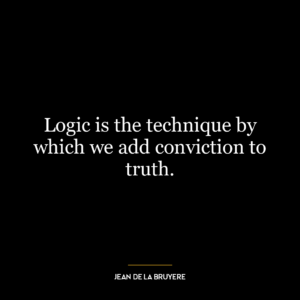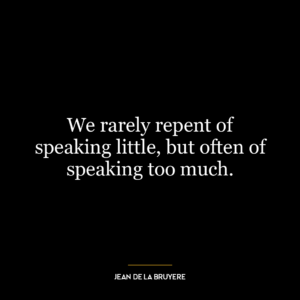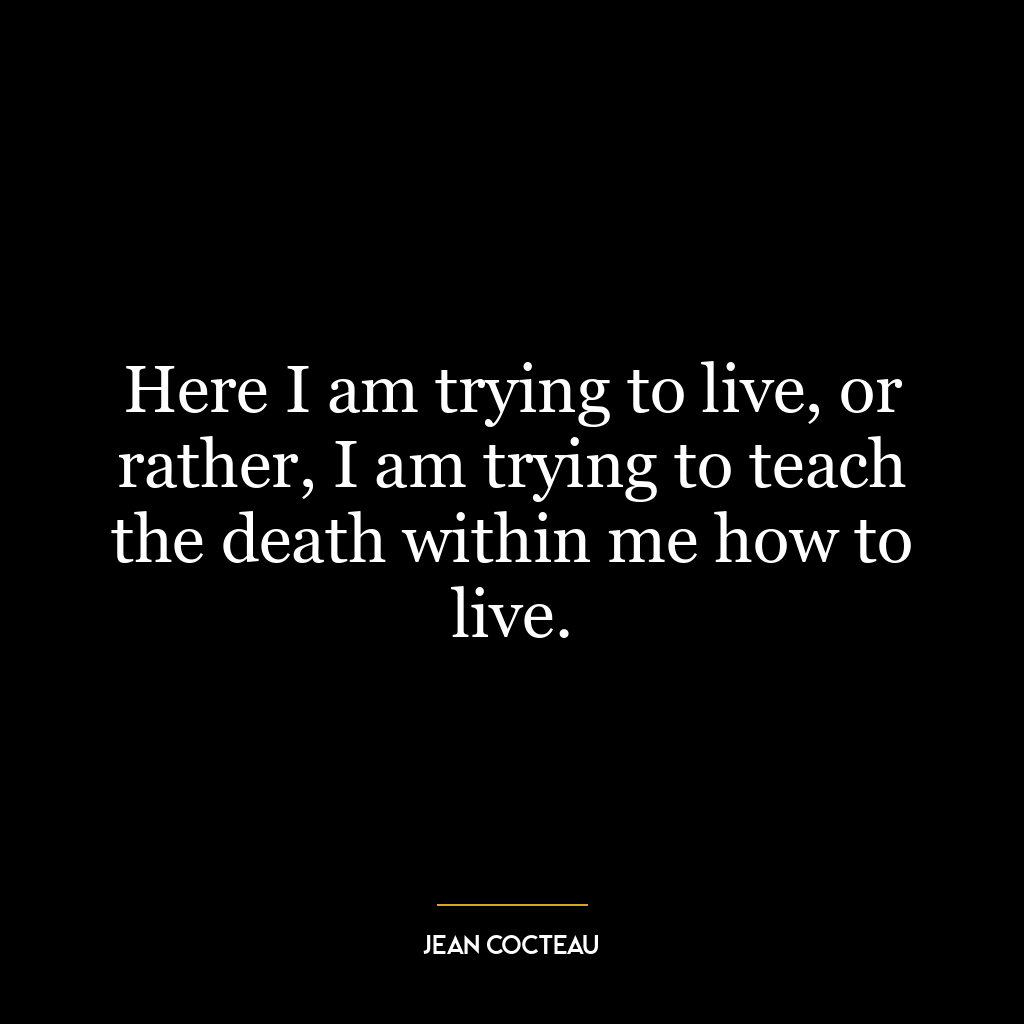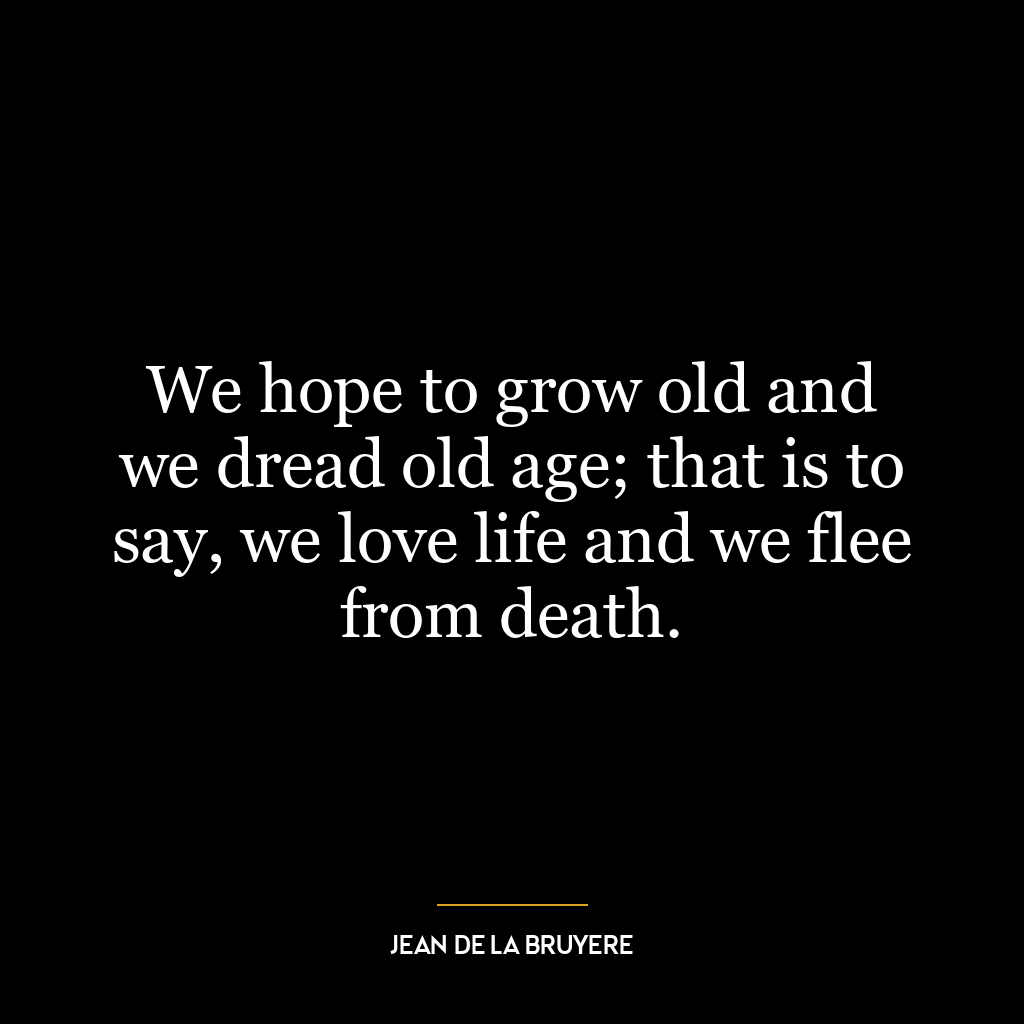This quote suggests that life is similar to a state of sleep, where people remain oblivious or unaware of their true potential or purpose. The phrase “old men sleep longest” can be interpreted as those who have lived longer are often more set in their ways, and may be less inclined to change or awaken to new perspectives. The idea of waking up only when they are about to die could be viewed as a metaphor for the regret or realization that comes at the end of life, when individuals may wish they had lived differently.
In the context of personal development, this quote could serve as a reminder to not sleepwalk through life, but to stay awake and aware, seizing opportunities for growth and self-improvement. It suggests that we should not wait until the end of our lives to realize our potential or to make changes, but rather to be active participants in our own lives.
In today’s world, this quote can be applied to the societal tendency to get caught up in routines and to live life on autopilot. It can be a call to action to break free from societal norms and expectations, to question our purpose, and to seek a life of meaning and fulfillment. It encourages us to wake up and take control of our lives, to not just exist, but to truly live.

